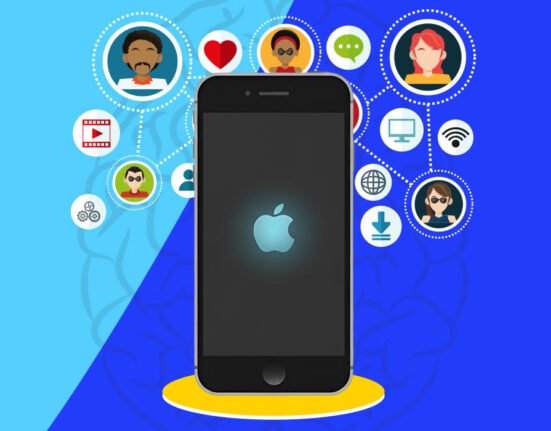In today’s world, where everything is just a tap away—be it same-day delivery or nonstop streaming—our craving for quick satisfaction is stronger than ever. We want things, and we want them now! But this isn’t just a modern habit—it’s deeply connected to how our brains are built. Let’s explore the fascinating psychology behind instant gratification, where our pleasure-loving side often clashes with our sensible, future-focused side.
What is Instant Gratification?
Simply put, instant gratification is the urge to feel good right away. Whether it’s reaching for that tempting chocolate bar, buying the latest gadget immediately, or scrolling endlessly through social media, it’s about going for quick rewards now instead of waiting for bigger ones later. The American Psychological Association describes it as “the immediate satisfaction of a desire or need.”
Why Our Brains Love Quick Rewards
Our brains are designed to seek pleasure and avoid pain—this is called the pleasure principle. Think of our ancestors: getting food quickly could mean survival, so the brain rewarded fast action. That instinct hasn’t gone away. The brain chemical dopamine plays a big role here. Every time we enjoy something—eating tasty food, getting likes on a post, or buying something new—dopamine is released. It feels great and tells our brain, “Yes, do that again!” This reward loop keeps us coming back for more of those quick highs.
A Tug of War Inside Our Heads
Here’s where it gets tricky. Our brain has different parts, each doing its own job, and not all of them are on the same page.
- The Limbic System (Emotional Brain): This older part of the brain controls emotions and urges. It pushes us toward instant rewards, is sensitive to dopamine, and develops early in life.
- The Prefrontal Cortex (Thinking Brain): This is our decision-maker, the logical planner that helps us think ahead and control impulses. But it takes time to develop, often not fully until our mid-20s.
Because the emotional brain is ready long before the thinking brain, there’s often an imbalance. It’s like a toddler (emotional brain) calling the shots while the adult in charge (thinking brain) is still learning the ropes.
Why We Give In So Easily
Instant gratification isn’t just about brain wiring. Other factors make it even harder to resist:
- Stress and Emotions: When we’re anxious, sad, or stressed, we often turn to quick pleasures like junk food or impulse shopping to feel better, at least for a moment.
- Fear of the Unknown: Waiting feels risky when we’re unsure of what lies ahead. It’s tempting to grab a sure thing now rather than hope for something later.
- Lack of Goals: If we don’t have clear long-term goals, short-term pleasures become more tempting. Without direction, any path with a reward feels good.
- Peer Pressure and Social Media: Seeing others chase instant rewards makes it seem normal. Social media especially feeds this, offering instant feedback and validation.
- Too Much Access: Technology makes giving in way too easy. From one-click purchases to endless entertainment, getting what we want fast has never been simpler.
The Hidden Costs of Always Choosing “Now”
A little instant gratification is fine—even healthy—but constantly chasing it can backfire:
- Delayed Dreams: Big goals like saving money, building a career, or staying healthy need long-term effort. Short-term choices can pull us off track.
- Money Problems: Impulsive buying and subscription overload can lead to debt and stress.
- Empty Happiness: The quick highs don’t last. We may keep chasing pleasure but still feel unfulfilled.
- Weakened Self-Control: The more we give in, the harder it becomes to resist. Like a muscle, self-control weakens if we don’t use it.
How to Strengthen Your “Thinking Brain”
The good news? We can train ourselves to wait, think, and choose better. Here’s how:
- Know Your Triggers: Notice when and why you seek quick fixes. Is it boredom, stress, or certain ads?
- Set Goals: Clear long-term goals make it easier to say no to distractions. A strong “why” helps fight the urge.
- Be Mindful: Stay aware of your feelings. Pause before acting on impulse, give your thinking brain time to step in.
- Add Friction: Make it harder to give in. Delete shopping apps, set screen limits, or mute tempting accounts.
- Choose Better Coping Tools: Instead of reaching for comfort food or your phone, try a walk, a book, or a chat with a friend.
- Delay on Purpose: Try small delays—wait 10 minutes before checking your phone, or save slowly for something meaningful.
- Reward Progress: Celebrate small wins. Every time you delay a desire, you build strength and self-trust.
Final Thoughts
Instant gratification is deeply wired into us, shaped by evolution and modern life. But understanding how it works gives us the power to change. By building up our thinking brain and learning to wait, we can make smarter choices that lead to lasting happiness. After all, the best things in life often take time, and they’re usually worth the wait.
References +
- Patel, N. (2014, June 24). The psychology of instant gratification and how it will revolutionize your marketing approach. Entrepreneur. https://www.entrepreneur.com/growing-a-business/the-psychology-of-instant-gratification-and-how-it-will/235088
- Heshmat, S., PhD. (2016, June 6). We’re hard-wired to want immediate payoffs, even if it’s unwise. Psychology Today. https://www.psychologytoday.com/us/blog/science-choice/201606/10-reasons-we-rush-immediate-gratification
- Ackerman, C. E., MA. (2025, April 1). What is instant gratification? (Definition & examples). PositivePsychology.com. https://positivepsychology.com/instant-gratification/
- BiałAszek, W., Gaik, M., McGoun, E., & Zielonka, P. (2015). Impulsive people have a compulsion for immediate gratification—certain or uncertain. Frontiers in Psychology, 6. https://doi.org/10.3389/fpsyg.2015.00515
- Mehta, K. (2022, November 1). Why you succumb to instant gratification – and the easiest way to make life optimizing choices. Forbes. https://www.forbes.com/sites/kmehta/2022/10/31/why-you-succumb-to-instant-gratification–and-the-easiest-way-to-make-life-optimizing-choices/
- Krishna. (2024, September 8). Instant gratification: The psychology behind it. Right Mindset Matters. https://rightmindsetmatters.com/understanding-instant-gratification-psychology/
- APA Dictionary of Psychology. (n.d.). https://dictionary.apa.org/instant-gratification
FAQs
1. What is instant gratification?
Instant gratification is the desire to feel good or satisfied right away. It’s when you choose quick rewards—like snacks, shopping, or scrolling—over long-term benefits that take time and effort.
2. Why do we crave instant rewards?
Our brains release a feel-good chemical called dopamine when we get something enjoyable quickly. This creates a “reward loop,” making us want to repeat the behavior—even if it’s not always good for us.
3. Is Instant Gratification always bad?
Not at all! Small moments of pleasure are part of a happy life. The problem starts when quick rewards constantly distract us from long-term goals like saving money, building healthy habits, or staying focused.
4. How can I resist instant gratification?
Start by noticing your triggers—stress, boredom, or certain apps. Set small goals, take mindful pauses before acting, and try delaying gratification by a few minutes. Practice builds better self-control over time.
5. What’s the benefit of delayed gratification?
Delayed gratification helps you make better decisions, stay focused on goals, and build lasting happiness. It strengthens self-control and leads to bigger rewards in areas like health, finances, and personal growth.













Leave feedback about this